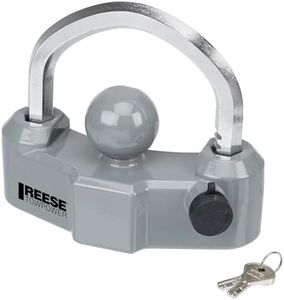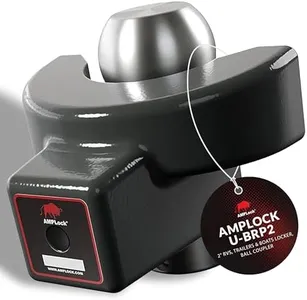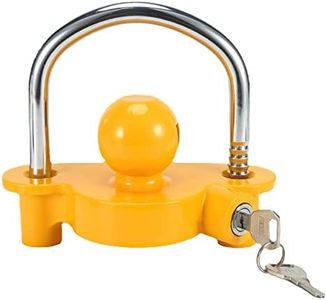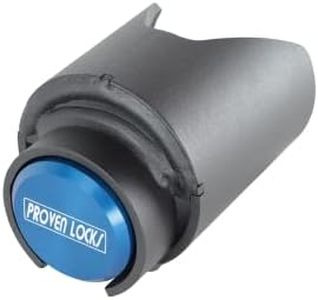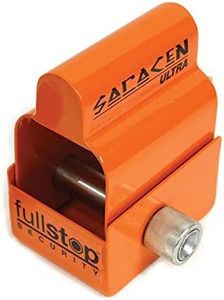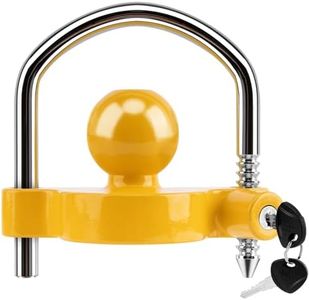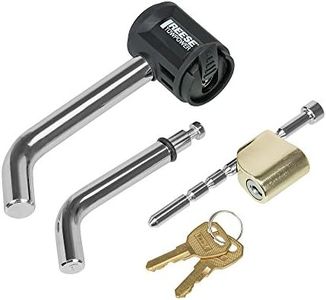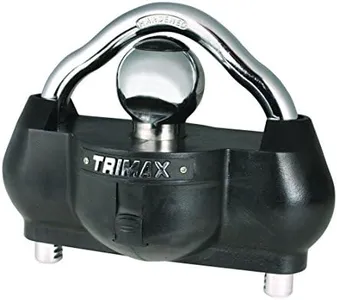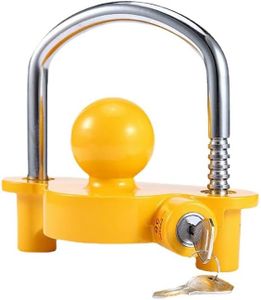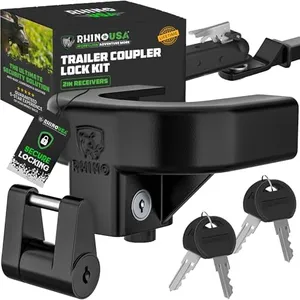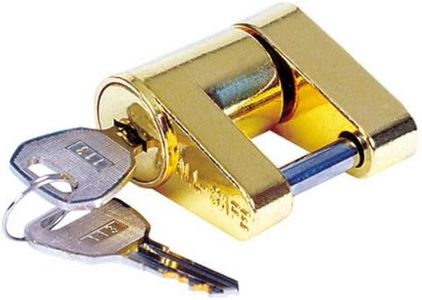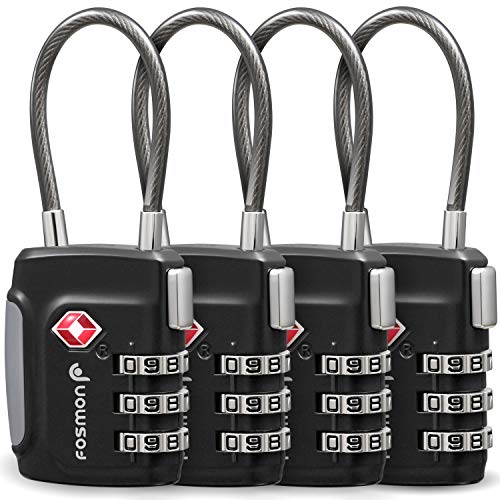We Use CookiesWe use cookies to enhance the security, performance,
functionality and for analytical and promotional activities. By continuing to browse this site you
are agreeing to our privacy policy
10 Best Trailer Coupler Locks
From leading brands and best sellers available on the web.Buying Guide for the Best Trailer Coupler Locks
Trailer coupler locks are an essential accessory to secure your trailer and prevent theft when it's not attached to a tow vehicle. With numerous styles and mechanisms available, selecting the right trailer coupler lock is about balancing security, compatibility, and convenience. It's worth understanding the different features and materials that impact how well your trailer is protected and how easy the lock is to use day-to-day.Material and Build QualityThe material a trailer coupler lock is made from determines its durability and resistance to tampering. Most locks are constructed from materials like hardened steel, aluminum, or zinc. Hardened steel generally provides the best strength and resists cutting or sawing, making it ideal if you leave your trailer unattended in public or high-risk areas, while aluminum or zinc options are lighter and more suited for occasional low-risk use. When choosing, consider where and how often you'll store your trailer: frequent, unsupervised parking in public spaces calls for a tougher, more tamper-resistant material.
Locking MechanismTrailer coupler locks come with various locking mechanisms, such as key, combination, or barrel lock styles. Keyed locks tend to be the most common; they're simple to use and provide good security, though you must keep track of the key. Combination locks eliminate the need for keys, great if you don't want to worry about losing them, but make sure to pick a code that's not easy to guess. Barrel and disc-style locks often give extra resistance to picking. If you prioritize convenience, go for a mechanism you find easy and reliable to use day-to-day.
Fit and CompatibilityA trailer coupler lock must fit snugly to function correctly, so check the compatibility with your trailer’s coupler type and size before buying. Couplers vary in ball hitch sizes—commonly 1-7/8”, 2”, or 2-5/16”—and the lock should match this size for secure fitment. Universal locks can fit multiple sizes, which is practical for those with more than one trailer, while custom-fit locks offer a tighter, more secure hold if you only have one coupler to protect. Assess your trailer(s) and select a lock that properly matches your specific coupler.
Weather ResistanceTrailer coupler locks are exposed to the elements, so weather resistance matters for longevity and proper function. Look for locks labeled as rustproof, weatherproof, or with protective coatings that shield against rain, snow, dust, and UV rays. Gaskets or covers over keyholes also help prevent internal parts from corroding or jamming. If your trailer will be stored outdoors, opt for a lock designed to endure harsh weather conditions for trouble-free use throughout the year.
Ease of UseConsider how easily you can attach and remove the lock, especially if you’ll be using it frequently. Heavier, more robust locks may provide better security but can be cumbersome for some users. Simpler designs with quick latch mechanisms save time if you need to secure your trailer often. Think about your routine and physical comfort when choosing—if you don’t want to struggle with installation each time, prioritize user-friendly designs.
